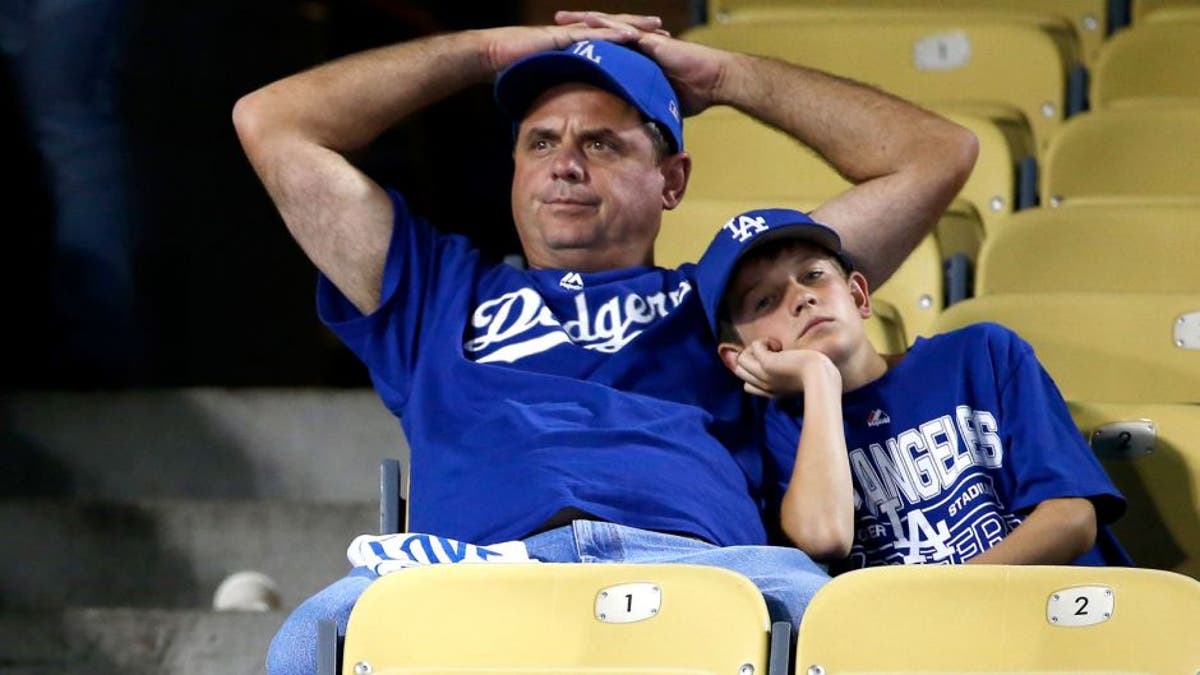
The expectations probably were unfair, but they existed nonetheless: When the offseason began, the Dodgers were supposed to re-sign Zack Greinke and lure David Price to L.A. with an astronomical offer, creating a rotation for the ages.
The Dodgers seemingly had operated without a budget since Mark Walter purchased the team in 2012. Why start now?
Well, the Dodgers failed to keep Greinke. They didn't land Price, either. Instead, they signed free agent Scott Kazmir to a three-year, $48 million contract and reached agreement with Japanese right-hander Kenta Maeda during the final days of 2015.
The precise dollar figures on Maeda's contract are unconfirmed, but there's a good chance the Dodgers' outlay for Kazmir and Maeda is well in excess of $100 million, setting aside Kazmir's opt-out after one season. It's rare that a team would commit nine figures to a particular area of its roster in a single offseason, only to have the investment described as "disappointingly low." But that is true of these Dodgers.
So now the rotation is full: Clayton Kershaw, Brett Anderson, Kazmir, Maeda and Hyun-Jin Ryu, assuming he's healthy after missing all of last season. Left-hander Alex Wood is nominally expendable, although the Dodgers would be wise to keep him until they assess Ryu's shoulder in spring training.
Barring a dramatic turn of events, the moves indicate the Dodgers won't strike a blockbuster deal with the Miami Marlins to acquire ace Jose Fernandez.
We're told that star power sells in L.A., but the Dodgers have little of it aside from Kershaw, the best pitcher in baseball this decade. The Dodgers are on track to spend substantially less in 2016 than they did in 2015 -- a worthwhile achievement, although it's unclear whether the payroll reduction came by way of mandate or gentle suggestion from ownership.
Can the Dodgers win a World Series with their current starting pitchers? Absolutely. The Royals managed quite well in 2015 with a rotation that finished 22nd in the majors with a 4.34 ERA during the regular season.
But the 2016 Dodgers lack three notable qualities the 2015 Royals possessed in abundance: dominant relief pitching, athleticism throughout the everyday lineup and a strong sense of identity.
Over the past three seasons -- the entirety of Greinke's tenure pitching alongside Kershaw -- the Dodgers were known for two things: the best 1-2 pitching combination in baseball, and the swagger of outspending any team in the industry, on any player, whenever it fancied them. Both halves of that reputation evaporated when Greinke signed with the Arizona Diamondbacks.
Today, the Dodgers are just another large-market franchise with a flawed, lopsided roster. The new front office, led by Andrew Friedman and Farhan Zaidi, has yet to fix two of the issues that vexed predecessor Ned Colletti: The Dodgers' outfield is cluttered and unreliable, and the bullpen lacks late-inning depth.
The Dodgers will be criticized because their rotation includes Kazmir and Maeda, rather than Greinke and Price. But that is only part of the reason Friedman and Zaidi have underwhelmed, after more than one year on the job.
